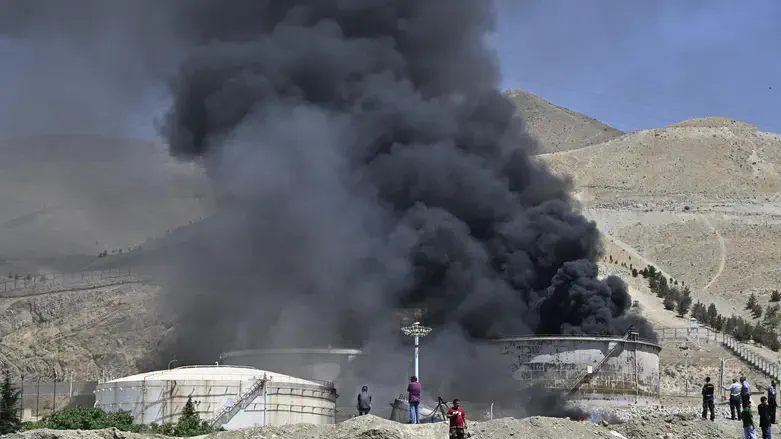
Amid sustained Israeli airstrikes on Iranian military and nuclear targets, Tehran is reportedly expressing an urgent willingness to resume negotiations over its nuclear program, according to a report by the Wall Street Journal.
Citing Middle Eastern and European officials, the report indicates that Iran has conveyed messages to both Israel and the United States through Arab intermediaries, seeking to de-escalate the conflict and re-engage in talks, provided the US refrains from joining the military campaign. Iranian officials emphasized to Arab counterparts the immediacy of their request, underscoring the pressing need to prevent further escalation.
Israeli air operations have so far inflicted significant damage on Iran's military infrastructure, killing several senior commanders, including much of the top leadership of the Islamic Republic's air force. However, damage to nuclear installations has been limited, and Israeli officials are reportedly prepared for at least two more weeks of strikes.
Prime Minister Benjamin Netanyahu has reaffirmed Israel's objective to dismantle Iran's nuclear capabilities and missile program, stating that military pressure will persist. While Netanyahu has clarified that regime change is not an explicit goal, he acknowledged it could be an outcome due to increasing vulnerabilities within the Iranian leadership.
Despite the airstrikes, Iran's nuclear program remains largely intact, and Arab diplomats say Tehran believes Israel will eventually require a diplomatic solution. Iranian officials have also expressed concern that a US entry into the conflict could lead to more devastating attacks on fortified sites such as the Fordow enrichment facility.
According to the Wall Street Journal, Arab governments, including Saudi Arabia, Qatar, and Oman, have urged Washington to restrain Israeli military action, warning that further escalation could endanger critical energy infrastructure in the Persian Gulf and destabilize global oil markets.
Iranian leaders have hinted they might expand the scope of the conflict or intensify their nuclear activities if no diplomatic path emerges. However, intermediaries note that Iran has not offered any new concessions, and the diplomatic process remains stalled since Israel began its latest offensive.
The conflict has recently expanded to include attacks on energy facilities, contributing to civilian casualties and raising international concerns. President Donald Trump, while initially hesitant to support military action, has endorsed Israel's strikes and stated, "I think it's time for a deal, and we’ll see what happens, but sometimes they have to fight it out."
The situation remains fluid as international actors continue to call for a cessation of hostilities and a return to negotiations.
